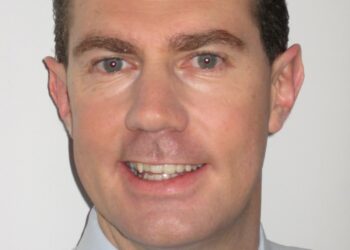In light of the new licensing regime for accountants providing SMSF advice, it makes a “tonne of sense” to combine accounting and financial advice businesses, said chief executive of Count Financial David Lane at the recent SMSF Strategy Day in Sydney.
“The more diversified the business, the better off it is for selling,” said Mr Lane. “You’ve increased the value of your business, you’ve increased the welfare and happiness of your clients, and it really is a win-win,” he added.
The amount of compliance work for accountants is “drying up,” the Institute of Public Accountants’ Tony Greco added; however, there is “huge potential” in adopting a blended practice model.
“You’ve got accountants who practise in the financial planning space, and now we have financial planners who… have come to the realisation that they provide tax advice as part of providing financial planning, so you do have a merging of those two professions,” Mr Greco said.
“I think firms that adapt will be the winners going forward, and in particular accountants,” he added. “[There’s] untapped potential amongst the majority of firms who haven’t taken that next step.”
Chris Appleyard, chief executive of CleverSuper, added that SMSFs are the “epitome of an enabler” across other advice sectors.
“When you look at practical application of one that may embark on [for example] a property strategy with an SMSF you’ve got financial advice, you’ve got lending, you’ve got cash product, you’ve got insurances, and you’ve got property,” he said.
“That very product has caused this horizontal integration, so there is this consolidation by default.”



Observer, I can see what you mean by a tilt to benefits for the professionals but surely this is representative of a broader failure by members/trustees of SMSFs to actively take on these roles themselves isn’t it ? The more a trustee of an SMSFS can do for themselves the less reliant they are on external advisers so until SMSF trustees take the reins a bit more they remain reliant on extrnal advisers. If external providers are in turn trying to streamline offers and processes to assist SMSF trustees that is likely to be of benefit to the trustee surely unless of course trustees take these roles on themselves. If trustees did more and learnt more the provision of advice to them would not be on the radar. A trustee takes on significant responsibility (often not understanding that fully) with no training or basic licensing of any kind. Perhaps the focus needs to shift towards educating SMSF trustees to make them less reliant on third party advisers. Nigel
Interesting article – interesting that is focuses on the benefits to the professionals – not the benefits to the members/trustees of SMSFs
Very interesting, I’ve been quietly listening to a very progressive AFSL for the last 6 months and they have had the structures in place to provide all advice areas for ages.
Out of interest I spent 15 years providing advice and I never had broad offerings, they are a bit of an evolution from my time.
How many of you advisers out there can be involved in the revenue from all of the advice ? Do advisers still send clients elsewhere for advice and not get paid for it ? Shame if they do.
Nigel